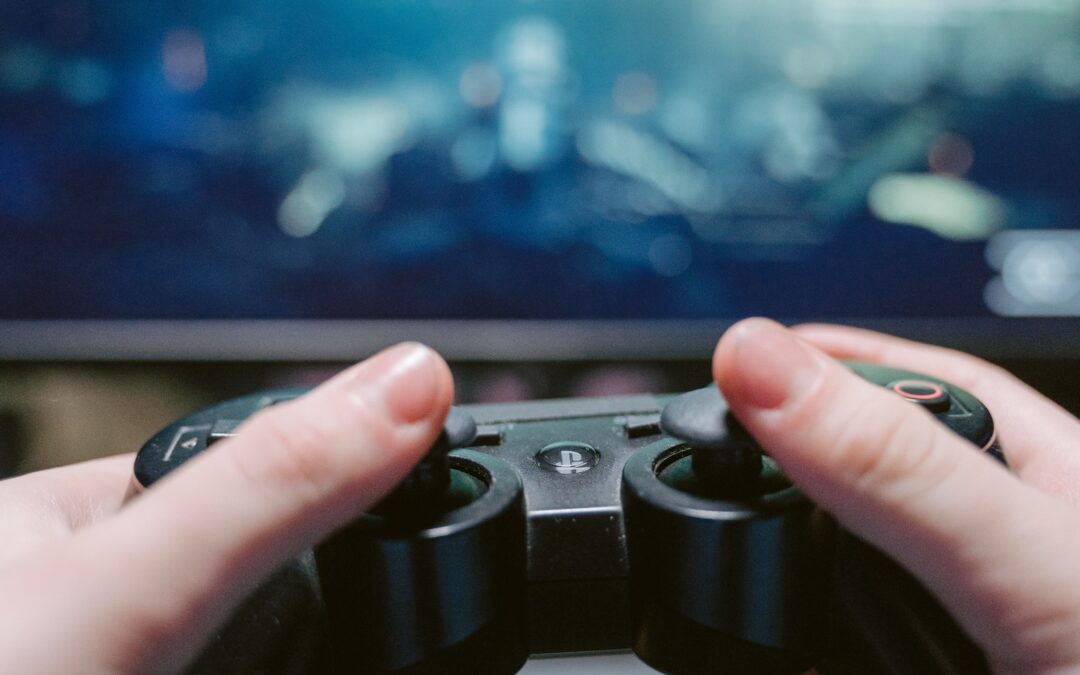Video gaming has evolved from a mere pastime to a captivating and immersive experience. Globally, there are presently 3.32 billion gamers. That’s just over forty percent of the world population immersed in the virtual world through video games.
For many, games offer a fun escape and a world where they can become the heroes of their own adventures. However, for some individuals, this form of entertainment can take a darker turn, leading to a profound emotional hunger and a painful void that addictive video gaming appears to fill. In this virtual world, a gamer numbs out to not only their internal suffering, but also to their immediate surroundings.
The excitement of completing quests, overcoming challenges, and achieving in-game rewards can induce a temporary sense of accomplishment and self-worth. While this can feel good to a happy, balanced person who plays purely for recreation, those who are lacking a sense of direction or achievement in their life, find hours of gaming as a replacement for this void.
In the midst of our increasingly fast-paced and interconnected world, feelings of loneliness, isolation, and alienation have become more prevalent. People are seeking emotional connections, validation, and a sense of belonging. Multiplayer online games have opened up new avenues for social interaction, allowing gamers to form communities and bonds with like-minded individuals. These virtual friendships can be particularly appealing to those who struggle with forming connections in the physical world. In this digital space, they can create an identity, be accepted for who they are, and experience a sense of social belonging. Driven by this feel-good experience with others, gaming can become excessive.
And we know that addiction leads to isolation. Online friendships, while filling the hunger for friendship, can also help to keep the addicted gamer disappearing in their room, behind a screen, never seeking outside interaction with family, a job or school environment, or in-person peers.
Addictive video gaming’s allure lies in its ability to offer a temporary escape from internal suffering. For individuals facing stress, anxiety, or depression, diving into a virtual world can provide a respite from their emotional pain. The game’s challenges and goals offer a structured framework, providing a sense of purpose and control that may be lacking in their daily lives. However, this temporary escape can lead to a vicious cycle, as personal issues remain unresolved and may often exacerbate with neglect.
Addictive video games are designed to trigger the release of dopamine, a neurotransmitter associated with pleasure and reward. Completing quests, acquiring loot, and progressing in the game triggers this dopamine rush, making players want more of these positive feelings. As a result, they become increasingly invested in the virtual world to sustain those pleasurable sensations. The more dopamine the brain receives, the more it needs to sustain the high. Ultimately, the hunger for emotional relief, a sense of belonging, or a need for achievement is never met.
While playing video games might initially seem like a solution to emotional and psychological hunger, it ultimately takes a toll on an individual’s well-being. Excessive gaming can lead to neglect of personal relationships, academic or professional responsibilities, physical health, and emotional stability. As the addiction deepens, the painful void that the gaming was meant to fill only grows larger, perpetuating a destructive cycle
Recognizing and addressing gaming addiction is crucial for recovery. Seeking the core of this emotional emptiness or immense stress the player is experiencing is important to moving forward.
Encouraging a balanced approach to gaming, where it remains an enjoyable pastime rather than an all-consuming obsession, is essential. This will take time and patience, as addictive gamers often struggle with internal pain and a sense of having no purpose or meaning in their lives. Working towards more open and non-judgmental communication, as well as being a good listener will create an environment of safety where the gamer is free to express themselves.
The next step is to halt the isolation the gamer has created. Moving gaming equipment to a centralized location, not allowing your gamer to eat meals in front of their console, and reducing multi-player games or communication can lead the gamer to spending time with others, in-person.
None of this process is easy, and having a solid support system in place, especially with those who understand gaming addiction is essential.
Seeking professional help, such as a therapist or coach, can be instrumental in identifying and addressing the underlying emotional issues that drive addictive behaviours.
Finding healthy coping mechanisms for the addicted gamer is a crucial step in helping them to find genuine fulfilment and happiness outside the virtual world.

